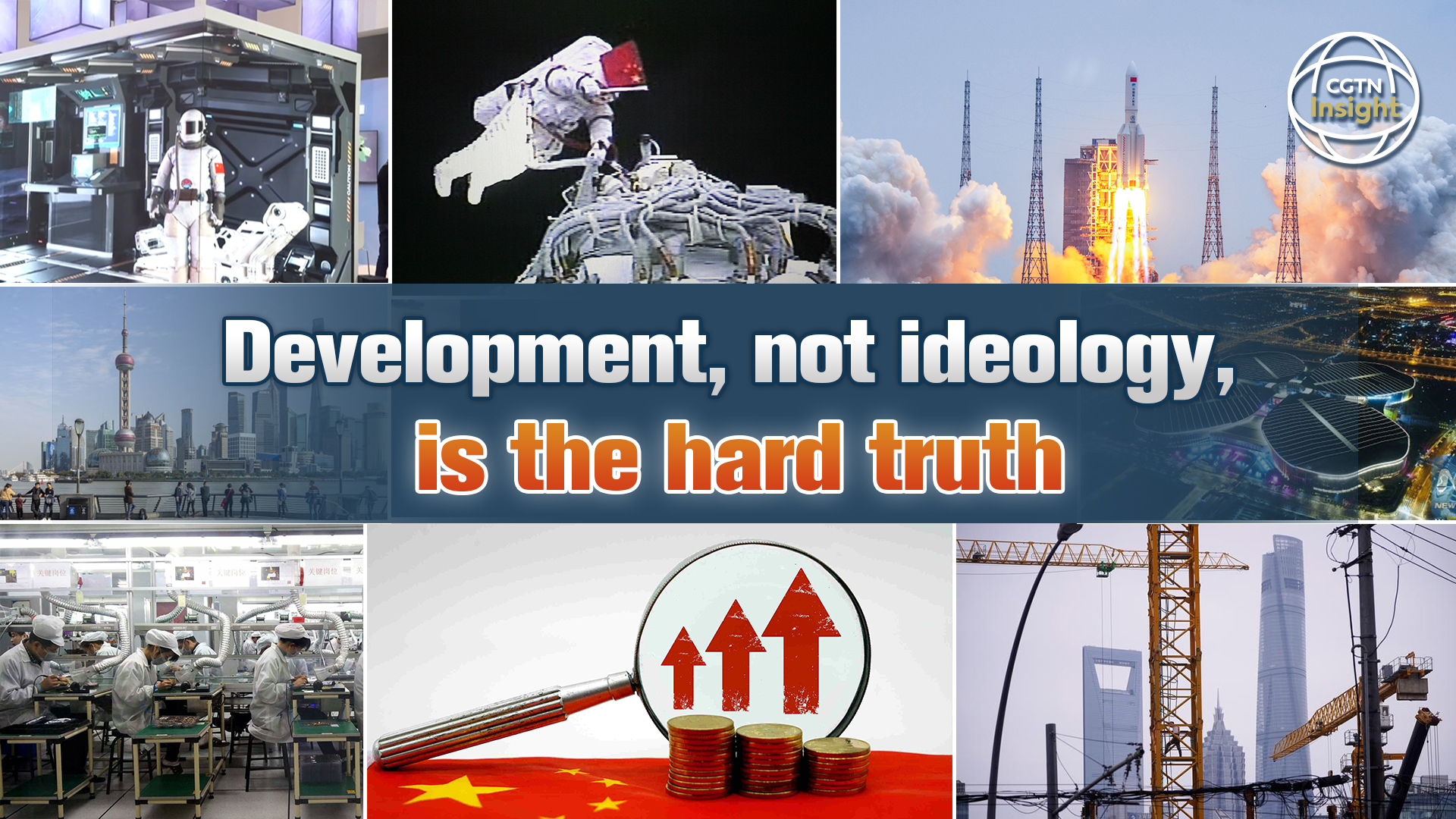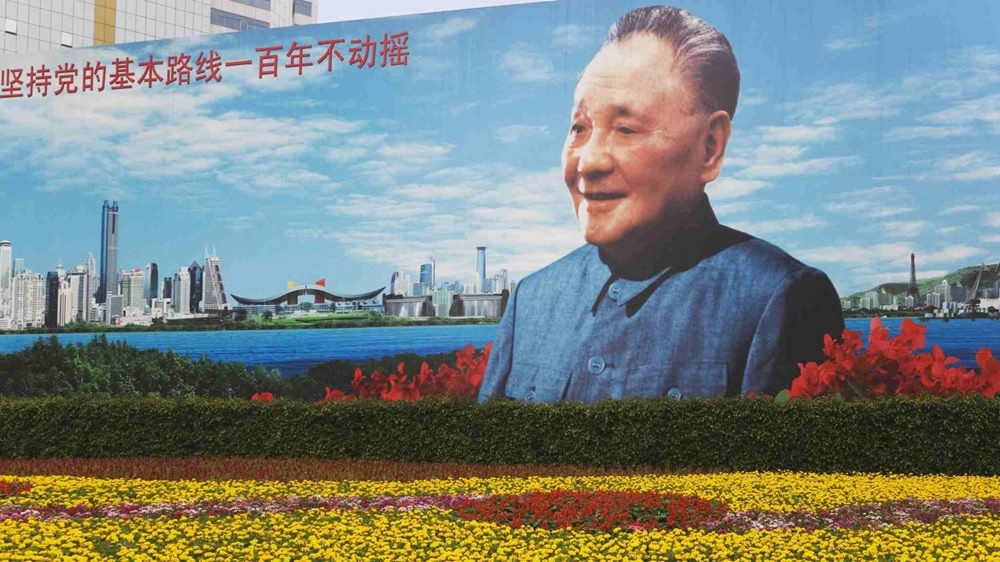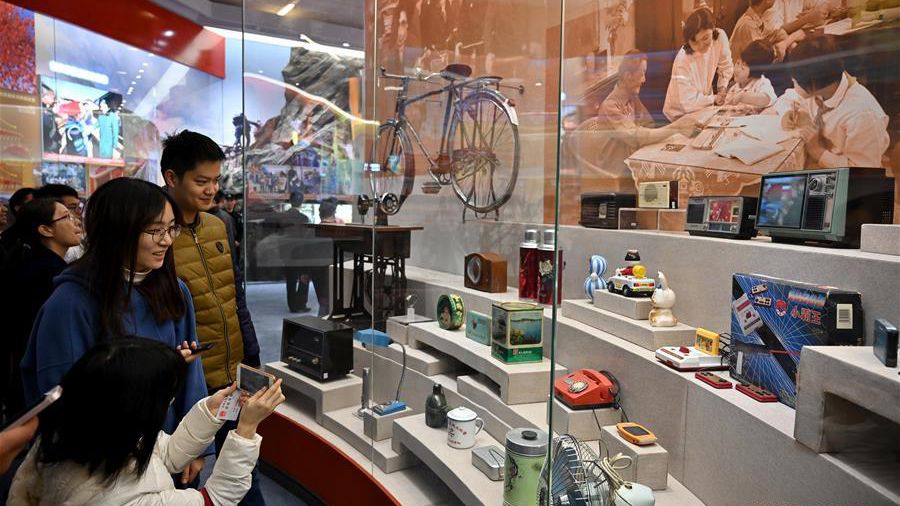
Editor's note: "Roots of China's Growth" is a 10-episode series marking the centenary of the founding of the Communist Party of China (CPC), which has presided over the country's meteoric rise as a global power. The series focuses on 10 fundamental elements of the strategy that has led to China's transformation from an impoverished nation over the past 100 years. "Institutional flexibility" is the eighth in the series. The article is part of a special series from CGTN and its international media partners.
"It doesn't matter if a cat is black or white so long as it catches mice."
The late Chinese leader Deng Xiaoping's words go straight to the truth of China's rapid growth – the country has chosen a development path that suits its actual conditions.
Yes, China is a socialist country. But socialism is not a sclerotic system. It varies in strategy and practice in different periods. This ensures that capitalism is not held in binary opposition to socialism.
Before Deng led China onto the path of reform and opening-up in 1978, China was locked in the largest ideological box in the world, splitting hairs over socialism vs. capitalism. It insisted that everything and anything of socialism must be, by nature, better than capitalism.
At that time, China probably achieved the highest level of egalitarianism in human history, but it was egalitarianism of poverty – everyone was equally poor.
Clearly, this was not the result China wanted. Deng had the wisdom and courage to declare that if socialism means poverty, it is not the system for China. The political system for China should be socialism with Chinese characteristics, which can incorporate everything and anything which can help China develop for the benefit of the people.

A portrait of the late Chinese leader Deng Xiaoping at a square in Shenzhen, Guangdong Province. /Xinhua
A portrait of the late Chinese leader Deng Xiaoping at a square in Shenzhen, Guangdong Province. /Xinhua
It's true that the planned economy may have been effective in the early days of China's development, as it enabled the country to pool the resources needed to build a national industrial system.
But China's socialism does not mean rigid adherence to a centrally-controlled economy. As China entered a new stage of development, it shifted focus to opening-up and overhauling the economic system to drive its industrialization to a higher level.
Socialism with Chinese characteristics has since become the most powerful liberating force for China, igniting innovation, creativity, entrepreneurship, productivity, efficiency, and eagerness to learn from anyone or any country who can help China grow and develop further.
As Deng said, development is the hard truth. The real test of the truth is practice, not ideology. Chinese people have the final say on whether something is good or not for the country. Ideology is not the only criterion in determining China's developmental path. This requires high-level institutional flexibility in China's governance.
Socialism with Chinese characteristics has made the whole system in China dynamic, test-based, and forward-looking, and has turned the Chinese people into the final arbiter of reform and social experiments in all walks of life.
Complacency, ossification, blind worship of authorities of all kinds, and limitations on people's ambition to experiment and explore have been declared public enemies in China. People are encouraged to discover, to dare, to leap, to soar and to break taboos, and to create new characteristics of all kinds for a better tomorrow in China and in the world.

Visitors look at vintage objects displayed at an exhibition to commemorate the 40th anniversary of China's reform and opening-up at the National Museum of China in Beijing, China, November 15, 2018. /Xinhua
Visitors look at vintage objects displayed at an exhibition to commemorate the 40th anniversary of China's reform and opening-up at the National Museum of China in Beijing, China, November 15, 2018. /Xinhua
It is in this broad context that China has transformed itself from impoverishment to the world's second largest economy. Being a socialist country does not conflict with China's efforts to promote a market economy and its role in international trade.
Since its accession to the World Trade Organization (WTO) in 2001, China's exports have risen nearly ten times to roughly $2.59 trillion in 2020, while imports rose by nearly eight and-a-half times to $2.05 trillion.
China's institutional flexibility explains these strides.
Fast forwarding into the 21st century, President Xi Jinping has declared that China is now in the new era of socialism with Chinese characteristics. China's transformation is supported by two pillars – maintaining stability at home and keeping peace in the world. The country is fast emerging as a leading champion of free trade, economic development, sustainable development, poverty alleviation and environmental protection.
In the world of today, socialism with Chinese characteristics is based on multiculturalism and multilateralism. Every country is entitled to follow the political system of its own choice, and no country in the world has the right to impose its own values or systems onto other countries.
As Deng said, it doesn't matter if a cat is black or white so long as it catches mice. China's institutional flexibility has saved the Chinese people from poverty as well as political and ideological hair-splitting, and instilled the strong spirit of pragmatism, realism and hardwork in the Chinese people. This paved the way for China's emergence as a major power.
Victor Gao is a chair professor at Soochow University and vice president of the Center for China and Globalization. You can contact him directly at gaovictor@aya.yale.edu. Please send any other contributions, including expressions of interest in sharing expertise with us, to opinions@cgtn.com.

